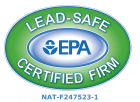We often think of our homes as a refuge from the cold and outside elements during the winter, but did you know your home can also be a trigger for asthma and allergy like symptoms this time of year?
Many people blame runny noses, sneezing, and coughing on the winter cold and dryness; but the truth is that your indoor environment could be making you sick as well. Here’s what you need to know about indoor air quality in the winter — and how you can keep your home and family healthy.
What Makes IAQ Especially Bad in the Winter?
Winter is a time when most of us close our windows and do everything we can to keep the winter cold out. Meanwhile, indoor air becomes especially dry — especially for those who rely on a furnace for indoor heat. As a result, airborne contaminants like dust, pollen, and mold become trapped inside the home, and humidity levels are far below what they should be.
Add to this the fact that people spend about 90% or more of their time indoors, in close proximity to others, during the winter. With so many indoor air quality risks at play during the winter, it’s no wonder we experience symptoms like dry skin, itchy eyes, and coughing at this time of year!
Improve Home Health with These Upgrades
These health enhancing home upgrades are important at all times of the year, but especially during the winter. Here are the improvements we recommend for healthier indoor air quality.
Air Sealing
Air leaks in your home’s exterior give outside allergens like dust, dirt, pollen, and mold a direct path into your home. Having a home performance specialist find and air seal these leaks will help keep allergens out.
Ventilation
Indoor allergens also need a controlled path out of the home, otherwise they will continue to recirculate. A whole-home ventilation system removes stale and contaminated indoor air and replaces it with fresh and filtered outdoor air.
Duct Cleaning
We clean and remove dust from every other other part of the house, but typically we ignore our duct work. However, duct work can become a major source of poor indoor air quality, accumulating dust, dirt, debris, and even mold over time. Duct cleaning removes these contaminants so that they don’t circulate throughout your home.
Boost IAQ & Reduce Allergy Symptoms with Green Team LI
This winter, don’t let poor indoor air quality increase your risk of allergy and asthma symptoms like coughing, sneezing, watery eyes, and dry skin. Have the experts at Green Team LI conduct an energy assessment on your home to pinpoint issues which may be harming your home’s health.












